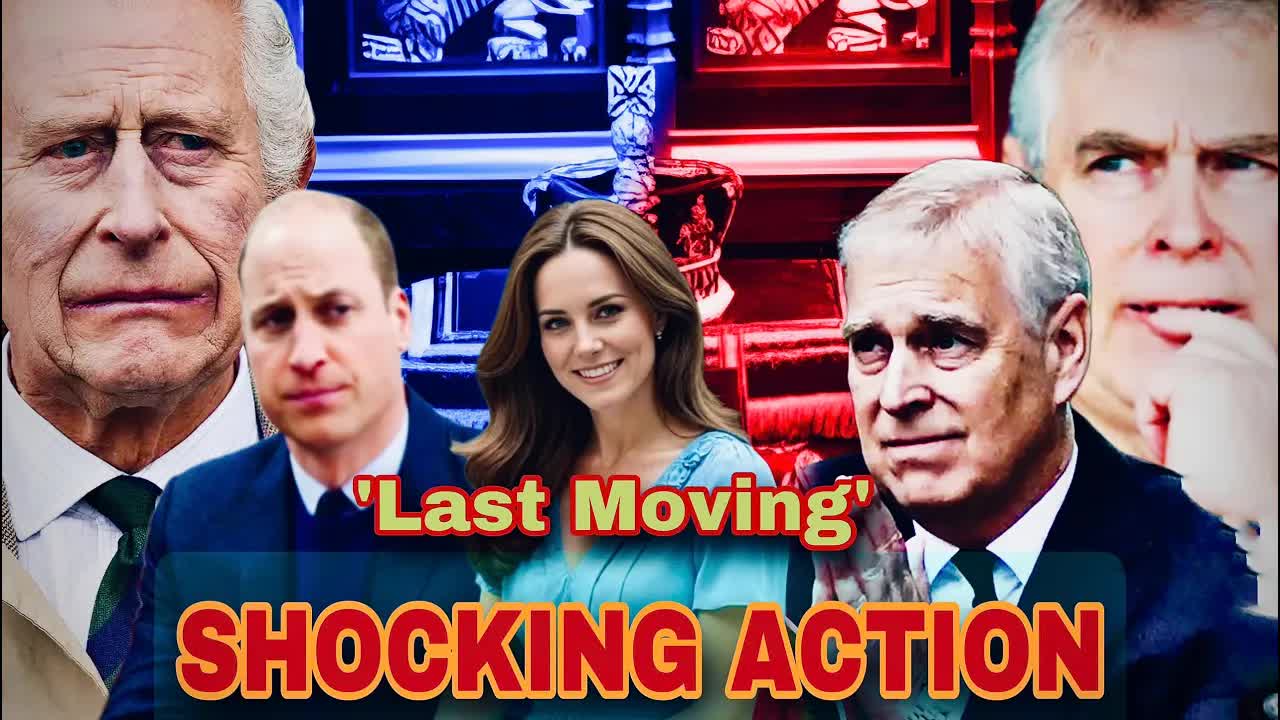In a significant turn of events for the British royal family, King Charles has made decisive moves regarding Prince Andrew, marking a pivotal shift in power dynamics.
During a recent summit at Balmoral, the King surprised many, including Andrew himself, with his bold decisions, which underscore a notable transfer of authority to Prince William and Princess Catherine.
As the royal family convenes at Balmoral for their summer retreat, discussions have naturally gravitated toward pressing issues, including the controversies surrounding Andrew and Prince Harry, as well as the ongoing financial viability of royal operations.
This gathering has provided a unique opportunity for open dialogue about the future of the monarchy.
Princess Catherine, who had been absent from her royal duties for an extended period due to health concerns, has made a remarkable recovery.
Reports reveal that she has resumed her responsibilities and even engaged in a spirited game with her children in Norfolk, signaling her readiness to embrace her role once again.
Her return is expected to bring renewed energy to the royal family, especially as Prince William prepares to implement a comprehensive overhaul of the monarchy.
King Charles’ recent actions against Prince Andrew are particularly noteworthy.
The King has taken a firm stance against his brother, dismissing Andrew’s personal security team and effectively urging him to vacate the royal lodge, a lavish residence in Windsor.
This £30 million estate has been a source of contention, especially following Andrew’s diminished royal status due to his involvement in a scandal.
The King’s decision to cut off Andrew’s £3 million annual funding for personal protection is seen as a strategic move to alleviate financial pressures on the monarchy.
Princess Anne has publicly backed this initiative, emphasizing the need for accountability and fiscal responsibility within the royal family.
Financial implications of these changes are substantial.
Andrew’s lease agreement for the royal lodge, which he acquired for £1 million in 2003, is now viewed as a potential income source for the Crown Estate.
With Andrew responsible for significant refurbishment costs, the King’s actions appear aimed at maximizing the estate’s value and utility.
Public sentiment seems largely supportive of King Charles’ approach.
Many believe that the monarchy must align itself with modern standards of transparency and accountability.
Experts argue that the King’s steadfastness is crucial for maintaining the royal family’s credibility and financial health.
In a sweeping move, King Charles has stripped Prince Andrew of most of his royal titles, retaining only his title of prince.
This is part of a broader strategy to redistribute roles among younger royals, ensuring that the monarchy remains relevant and effective in its duties.
The recent decision not to grant Prince Andrew any inheritance from Queen Elizabeth‘s estate has further fueled public discourse.
This step is perceived as an effort to distance the monarchy from Andrew’s controversial history, reinforcing a commitment to transparency and responsible resource allocation.
Andrew’s reaction to these changes has been one of anger and disappointment.
He has publicly expressed his sorrow over the loss of titles and security, lamenting what he sees as unfair treatment during a challenging time for the family.
Despite his grievances, the general consensus leans toward supporting the King’s difficult yet necessary choices.
Experts in royal affairs have weighed in on these developments.
Royal historian Dr. Anna Whitelock highlights that King Charles’ actions reflect a strong commitment to accountability, essential for the monarchy’s future.
Public relations expert Richard Fitzwilliams notes that the King’s decisions are both daring and strategic, positioning the royal family to thrive in contemporary society.
Public opinion appears overwhelmingly in favor of King Charles’ decisions.
Surveys indicate that a significant majority supports the removal of Andrew’s titles and security, viewing it as a critical step toward restoring the monarchy’s reputation.
Social media discussions echo this sentiment, with many praising the King’s leadership and the need for accountability within the royal family.
As King Charles navigates these turbulent waters, his actions signal a transformative moment for the British monarchy.
With Princess Catherine back in action and a renewed focus on modernizing the royal structure, the family is poised to embrace a future that resonates with the values of transparency and public trust.
The path ahead will require continued public support and a commitment to evolving alongside societal expectations.










